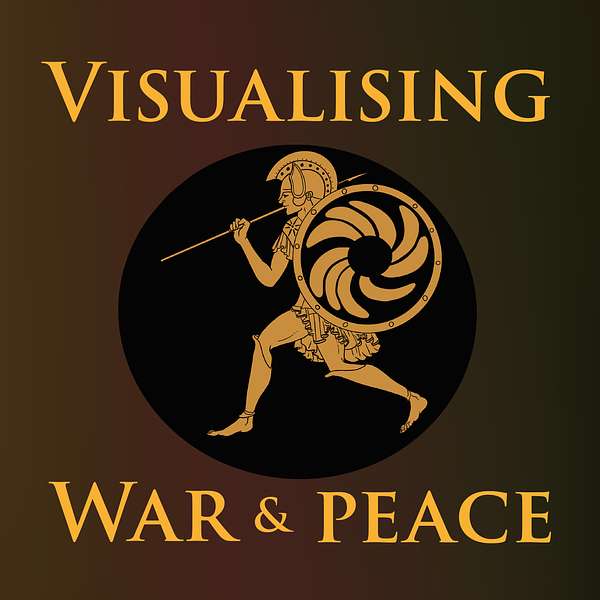
Visualising War and Peace
How do war stories work? And what do they do to us? Join University of St Andrews historian Alice König and colleagues as they explore how war and peace get presented in art, text, film and music. With the help of expert guests, they unpick conflict stories from all sorts of different periods and places. And they ask how the tales we tell and the pictures we paint of peace and war influence us as individuals and shape the societies we live in.
Visualising War and Peace
Peacebuilding and Transitional Justice with Roddy Brett
Use Left/Right to seek, Home/End to jump to start or end. Hold shift to jump forward or backward.
In this episode, Alice interviews Dr Roddy Brett, an expert on political violence and peacebuilding based at the University of Bristol. Roddy’s research looks at the causes and consequences of armed conflict, and how it shapes state institutions and societies more broadly. He also works on conflict resolution and transitional justice, and is the author/co-author of a number of books, including The Companion to Peace and Conflict Fieldwork, The Politics of Victimhood in Post-conflict Societies, and The Origins and Dynamics of Genocide: Political Violence in Guatemala.
He has worked a lot in Latin America, and more recently he has been looking at armed conflict in Ukraine, Myanmar, Lebanon and Northern Ireland, examining the legacies of armed conflict and the strategies which individuals and groups use to coexist in the aftermath of mass violence. Roddy is not just an academic: he has also worked for the United Nations and various NGOs on conflict analysis and conflict transformation. In Guatemala, for example, he was part of the team that prepared the investigation and brought evidence against former de facto president General Rios Montt for genocide and crimes against humanity, which resulted in his conviction in 2013.
In the podcast, we discuss the language and categories used to define different kinds of political violence, the hierarchies we construct between them, and what difference they make to how perpetrators, victims, international observers and legal processes visualise and respond to conflict. Roddy talks us through the long process of investigating and redefining the political violence that took place in Guatemala from 1975 onwards, which was described by government supporters as 'brave counter-insurgency' but ultimately defined as involving acts of genocide, perpetrated against the Mayan population by the state. He reflects on the ongoing dissonance between how different sectors of Guatemalan society visualise and narrate the past, with implications for their future: different habits of remembering and describing what happened are further polarising an already polarised community.
This gets us talking about peace and reconciliation processes, with Roddy reflecting on some of the ground-breaking aspects of the 2014 Colombian peace process. Rather than simply involving military actors, this involved civil society and gave victims a seat at the negotiating table. Combatants on both sides heard from a 'universe of victims'. Roddy compares this participatory approach with more 'top-down' peace processes, and we discuss the 'local turn' in sustainable peacebuilding and the 'spaces for encounter' which can engage emotions, break down conflict identities, 'deconstruct' or 'rehumanise' the enemy', overcome mistrust, and help people on all sides envision a more peaceful future. Roddy underlines the blurred line between 'peace' and 'conflict', as we consider the barriers to sustainable peacebuilding. And he talks about a project he is involved in which uses film as a tool to help individuals and communities look critically at their habits of visualising war and peace.
We hope you enjoy the episode. For a version of our podcast with close captions, please use this link. For more information about individuals and their projects, please visit the University of St Andrews Visualising War website.
Music composed by Jonathan Young
Sound mixing by Zofia Guertin